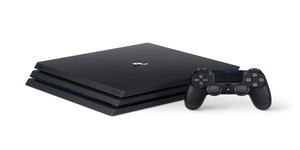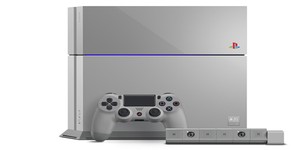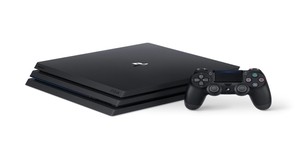
Sony has confirmed that it is bringing its PlayStation Now streaming games platform to Windows and macOS PCs, offering the ability to play around 400 PlayStation 3 era titles for a monthly subscription - including exclusive games not previously ported from the platform.
Originally designed to bring a modicum of backwards-compatibility to the PlayStation 4 and powered by Gaikai's game-streaming technology, PlayStation Now has since found its way to multiple platforms: as well as the PS4, the client can be installed on the PlayStation 3, PlayStation Vita, PlayStation TV, and selected 'smart' TVs and Blu-ray players from Sony and Samsung. Now, it's coming to PCs too.
According to Sony's Eric Lempel, the Windows version is to launch shortly with a macOS variant under evaluation for a future release. Coming to Europe first, the PC port of PlayStation Now will require a Windows 7 Service Pack 1 or higher operating system, a 3.5GHz Core i3 or 3.8GHz AMD A10 or better processor, 2GB of RAM, and 300MB of more of hard drive space. While no beefy graphics card is required - the games being rendered remotely with a video stream relaying the output to the user - a minimum internet connection speed of 5Mb/s is needed for the optimum experience.
At the same time, Sony announced an adaptor dongle which allows the company's Bluetooth-enabled DualShock 4 controllers to operate correctly on Windows and macOS systems. Using this, Lempel claimed, all features of the controller will be activated: 'buttons, analog sticks, touch pad, light bar, motion sensors, vibration, and stereo headset jack – as long as the gaming application supports these features.' Lempel did not detail how the light bar would be used in-game without a PlayStation Camera to track its location, bar the context-sensitive colour and lighting featured in selected PS4 titles. The adaptor also functions for PS4 Remote Play operation, Lempel confirmed, but no details have been provided on why a dongle is required for PCs that already have Bluetooth functionality.
UK pricing and availability for the dongle have yet to be confirmed, with a launch promised across Europe 'soon' with North America to follow.
Originally designed to bring a modicum of backwards-compatibility to the PlayStation 4 and powered by Gaikai's game-streaming technology, PlayStation Now has since found its way to multiple platforms: as well as the PS4, the client can be installed on the PlayStation 3, PlayStation Vita, PlayStation TV, and selected 'smart' TVs and Blu-ray players from Sony and Samsung. Now, it's coming to PCs too.
According to Sony's Eric Lempel, the Windows version is to launch shortly with a macOS variant under evaluation for a future release. Coming to Europe first, the PC port of PlayStation Now will require a Windows 7 Service Pack 1 or higher operating system, a 3.5GHz Core i3 or 3.8GHz AMD A10 or better processor, 2GB of RAM, and 300MB of more of hard drive space. While no beefy graphics card is required - the games being rendered remotely with a video stream relaying the output to the user - a minimum internet connection speed of 5Mb/s is needed for the optimum experience.
At the same time, Sony announced an adaptor dongle which allows the company's Bluetooth-enabled DualShock 4 controllers to operate correctly on Windows and macOS systems. Using this, Lempel claimed, all features of the controller will be activated: 'buttons, analog sticks, touch pad, light bar, motion sensors, vibration, and stereo headset jack – as long as the gaming application supports these features.' Lempel did not detail how the light bar would be used in-game without a PlayStation Camera to track its location, bar the context-sensitive colour and lighting featured in selected PS4 titles. The adaptor also functions for PS4 Remote Play operation, Lempel confirmed, but no details have been provided on why a dongle is required for PCs that already have Bluetooth functionality.
UK pricing and availability for the dongle have yet to be confirmed, with a launch promised across Europe 'soon' with North America to follow.

MSI MPG Velox 100R Chassis Review
October 14 2021 | 15:04









Want to comment? Please log in.